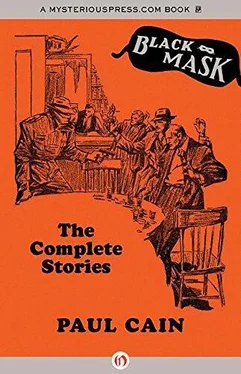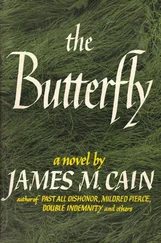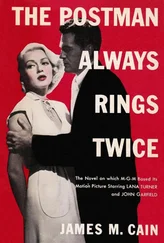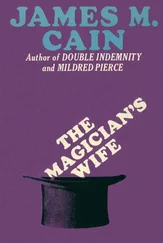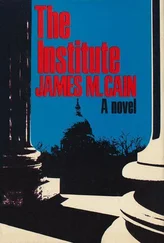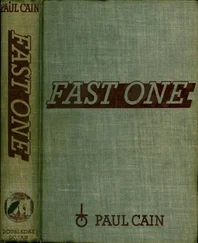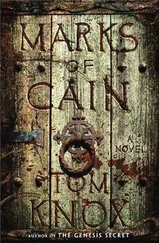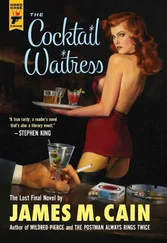“That’s fine.” Kells went to a table and poured himself a glass of water from a big decanter. “No, I’m going down to the station and see if they want to ask any questions, and then I’m going home and pack. I’ve got reservations on the Chief : six o’clock.”
Fenner stood up. “That’s too bad,” he said. “I have a hunch that you and I would be a big help to one another.”
He held out his hand. Kells shook it, turned and went to the door. Then he turned again, slowly. “One other thing,” he said. “There’s a gal out here — name’s Granquist — came out with a couple of Rose’s boys — claims to have a million dollars’ worth of lowdown on the administration. I can’t use it. Maybe you can get together.”
Fenner said: “Fine. How much does she want?”
Kells hesitated a bare moment. “Fifteen grand.”
Fenner whistled. “It must be good,” he said. “Send her out to my hotel. Send her out tonight — I’ll throw a party for her.”
“She’ll go for that. She’s Scotch-screwy.” Kells grinned and went out the door and closed it behind him.
He went into the Police Station, into the Reporters’ Room to the right of the entrance. Shep Beery looked up over his paper and said: “My God! What happened to your face?”
They were alone in the room. Kells looked with interest at the smudged pencil drawings on the walls. He sat down. “I got it caught in a revolving door,” he said. “Does anyone around here want to talk to me?”
“I do, for one.” Beery put the paper down and leaned across his desk. He was a stoop-shouldered gangling man with a sharp sad face, a shock of colorless hair. “What’s the inside on all this, Gerry?”
“All what?”
Beery spread the paper, pointed to headlines: PERRY INDICTED FOR HAARDT MURDER; WIFE CONFESSES. Beery’s finger moved across the page: GAMBLING BARGE BURNS; 200 NARROWLY ESCAPE DEATH WHEN JOANNA D. SINKS.
Kells laughed. “Probably just newspaper stories.”
“No fooling, Gerry, give me a lead.” Beery was intensely serious.
Kells asked: “You or your sheet?”
“That’s up to you.”
Kells trailed a long white finger over his discolored right eye. “If you read your paper a little more carefully,” he said, “you’ll find where an unidentified man was found dead near a wharf at San Pedro.” He put his elbows on the desk, leaned close to Beery. “That’s Nemo Kastner of Kansas City. He shot Doc Haardt on Jack Rose’s order and helped frame me for it. He was shot by O’Donnell, his running mate, when they had an argument over the cut for Haardt’s kill. He set fire to the ship...”
“...And swam four miles with a lungful of lead.” Beery had been thumbing through the paper; pointed to the item.
“Uh-huh.”
“Who shot O’Donnell?” Kells said: “You’re too goddamned curious. Maybe it was Rose... Is he going to live?”
“Sure.”
“That’s swell.” Kells took a deep breath.
“Now that’s for you,” he said. “Perry will have to take the fall for Doc’s murder for the time being. He was in on it plenty, anyway. Kastner’s dead and I couldn’t prove any of it without getting myself jammed up again. If anything happens to me you can use your own judgment, but until something happens this is all under your hat. Right?”
Beery nodded.
Kells stood up, said: “Now let’s go upstairs and see if the captain can think of any hard ones.”
They went out of the room into the corridor, upstairs.
The captain was a huge watery-eyed Swede with a bulbous, thread-veined nose.
Beery said: “This is Kells... He thought you might want to talk to him.”
The captain shook his head slowly. He looked out the window and took a great square of linen out of his pocket and blew his nose. “No — I don’t think so,” he said slowly. “Cullen and the cabdriver say you was at Cullen’s house yesterday afternoon when Haardt was shot.”
He looked up at Kells and his big mouth slit across his face to show yellow uneven teeth. “Was you?”
Kells smiled faintly, nodded.
“That’s good enough for me.” He blew his nose again noisily, folded the handkerchief carefully and put it in his pocket. “Perry’s the only one to say you killed Doc. Lieutenant Reilly thinks you did, but we can’t run this department on thinks... I think Perry’s guilty as hell.”
They all nodded sagely.
Kells said: “So long, Captain.” He and Beery started out of the room.
The captain spoke again as Kells went through the door.
“Where was you last night?”
Kells turned. “I was drunk,” he said. “I don’t remember.” His eyes glittered with amusement.
The big man looked at him and his face wrinkled slowly to a grin. “Me too,” he said. He slapped his thigh and laughed — a terrific crashing guffaw.
His laughter followed Kells and Beery down the stairs, through the corridor, echoing and reechoing.
Beery said: “See you in church, Gerry.”
Kells went out into the sunlight. He walked down First to Broadway, up Broadway to his bank.
The teller told him he had a balance of five thousand, one hundred and thirty dollars. He asked that the account be transferred to a New York bank, then changed his mind.
“I’ll take it in cash.”
The teller gave him five thousand-dollar notes, a hundred, a twenty, and a ten-dollar bill. Kells took the sheaf of twenty-four new hundred-dollar bills out of his pocket and exchanged twenty of them for two more thousand-dollar notes. He folded the seven thousand-dollar notes and put them in a black pin-seal cardcase, put the case in his inside breast pocket. He put the five hundreds and the smaller bills in his trouser pocket and went out and got into a cab.
He said, “Lancaster Hotel” and looked at his watch. It was twoforty; he had three hours and twenty minutes to get home and pack and make the Chief .
“Gerry.” Granquist called to him as he crossed the lobby.
He waited until she had crossed to him, smiled ingenuously. “ Gerry in the hay, baby,” he said gently. “ Mister Kells in public.”
She laughed softly — a metallic softness.
Kells said, “Did you get my note?”
“Uh-huh.” She spoke rapidly, huskily. “I woke up right after you left, I guess. Your phone’s been raising bloody hell. I’m going home and get some sleep...”
She held out a closed black-gloved hand, and Kells took his key.
He said: “Come on back upstairs — I’ve found a swell spot for your stuff.”
“Oh yeah?” Her face brightened.
They went to the elevator and up to Kells’ room. Granquist sat in a low, steel-gray leather chair with her back to the windows, and Kells walked up and down.
“L.D. Fenner has been the boss of this town for about six years,” he said. “The reform element moved in last election, but Fenner’s kept things pretty well under control — he has beautiful connections all the way to Washington...”
Kells paused while Granquist took out tobacco and papers, started to roll a cigarette.
“You wanted to sell your stuff to Rainey for five grand,” he went on. “If it’s as good as you think it is, we can get fifteen from Fenner... That’s ten for you and five for me” — he smiled a little — “as your agent...”
Granquist said: “I was drunk when I talked to Rainey. Fifteen’s chicken-feed. If you want to help me handle this the way it should be handled, we can get fifty.”
“You have big ideas, baby. Let’s keep this practical.”
Granquist lighted her cigarette. She said: “How would you like to buy me a drink?”
Kells went into the dressing room and took two bottles of whiskey out of a drawer. He tore off the tissue paper wrappings and went back into the room and put them on a table.
Читать дальше
